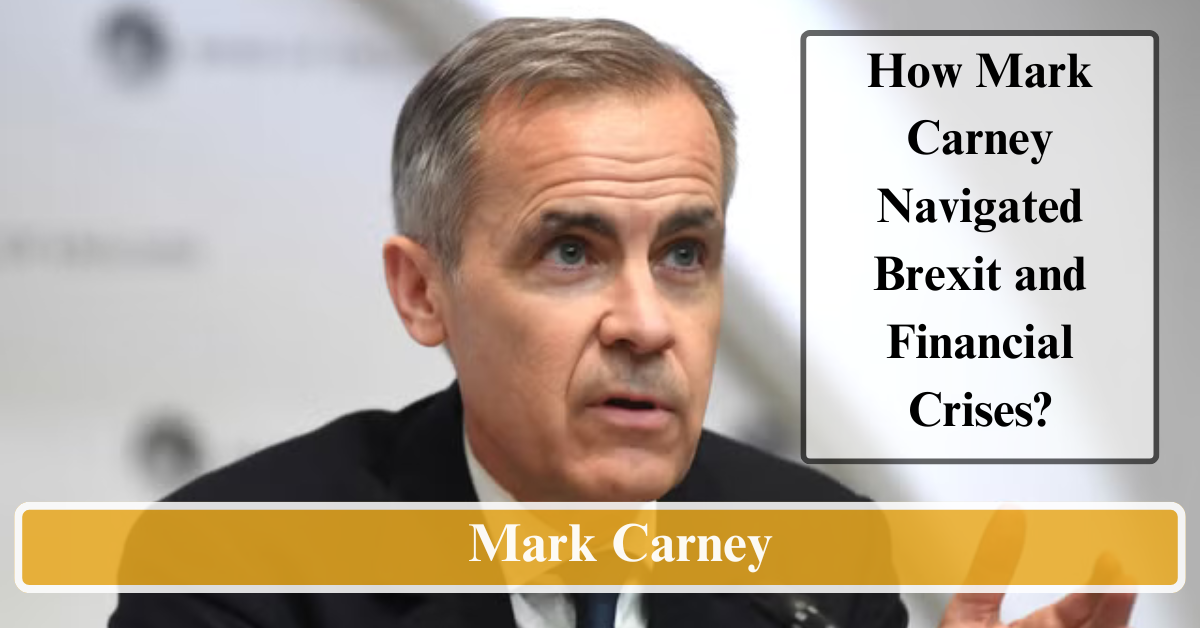Mark Carney, born on March 16, 1965, is currently 60 years old. He is a Canadian economist who made history as the first non-British governor of the Bank of England in 2013. Carney’s impressive career spans across prominent positions in banking and global economic governance. He is married to Diana Fox Carney, an Englishwoman, and they have two children. His net worth is estimated to be around $10 million. Known for his modern approach to financial governance, Carney’s legacy extends beyond just economic policy—he has also become a leader in advocating for sustainability and climate change action on the global stage.
Early Career and Background
Mark Carney’s career began in the world of investment banking, where he worked at Goldman Sachs. His early work at the bank provided him with a deep understanding of global financial markets, which would prove invaluable in his later roles. Carney’s experience in financial crisis management began in 2008 when he was appointed Governor of the Bank of Canada. He took over just months before the height of the Great Financial Crisis, and his leadership during that time was pivotal. He implemented quick measures that helped Canada avoid the worst impacts of the economic downturn. This success set the stage for his next big role: Governor of the Bank of England.
Governor of the Bank of England
Carney made history in 2013 when he became the Bank of England’s first non-British governor in over 300 years. His leadership was both transformative and highly scrutinized. One of the key changes he implemented was the introduction of forward guidance, a policy aimed at reassuring markets by providing clear indications on the Bank’s future monetary policy. By committing to not raise interest rates until unemployment fell below 7%, Carney sought to stimulate the economy and encourage lending. This approach became one of his defining policies, despite some criticism over its unpredictability, with a prominent member of Parliament even dubbing him the “unreliable boyfriend” due to the confusion surrounding the policy.
Modernizing Financial Governance
Carney’s tenure at the Bank of England marked a shift towards more modern and transparent financial governance. One of his major initiatives was overseeing the abolition of the Financial Services Authority, with financial regulation moving under the direct oversight of the Bank. This decision was part of his broader efforts to simplify and strengthen the regulatory framework in response to the financial crisis.
Carney also introduced measures aimed at increasing the public profile of the Bank, making it a more transparent and communicative institution. He reduced the frequency of interest rate meetings from 12 to 8 per year and began publishing the minutes of meetings alongside rate announcements, both of which aimed at giving the public and financial markets clearer insights into the Bank’s decision-making process.
Brexit and International Leadership
Carney’s influence wasn’t limited to domestic policy; he also played a pivotal role in navigating Brexit. In 2014, ahead of the Scottish independence referendum, he warned that an independent Scotland would likely have to surrender monetary powers if it wanted to continue using the pound. His warnings before the Brexit referendum in 2016 were equally strong. He predicted that a vote to leave the EU could push the economy into recession.
When the leave vote was successful, Carney quickly moved to reassure markets, stating that the UK financial system would continue to function smoothly. Despite the economic uncertainty, the Bank of England took swift action by cutting interest rates from 0.5% to 0.25% and restarted quantitative easing to provide additional support to the economy. In his reflection of the day after David Cameron resigned, Carney described it as the “toughest day” of his career, highlighting the level of stress he experienced as the country navigated uncharted economic waters.
Leading Through Crisis
In 2020, Carney’s leadership faced a new challenge as the COVID-19 pandemic erupted. As the pandemic spread across the globe, Carney’s final week at the Bank of England was marked by urgent action to protect the economy. The Bank cut interest rates by 0.5%, bringing them to an all-time low, and announced additional measures to stabilize financial markets. Carney, during his last days at the Bank, emphasized that the economic shock would be “temporary” and that the Bank was committed to ensuring recovery.
His time managing the global financial system during these tumultuous times also positioned him as a key player in dealing with world leaders, including Donald Trump, during his presidency. As the chair of the Financial Stability Board from 2011 to 2018, Carney coordinated responses to regulatory challenges worldwide, which involved navigating Trump’s disruptive impact on the international order.
Carney’s Post-Bank of England Role
After leaving the Bank of England, Carney didn’t step away from leadership roles. In 2019, he was appointed the UN Special Envoy for Climate Change, where he became an advocate for sustainable finance. He launched the Glasgow Financial Alliance for Net Zero in 2021, bringing together financial institutions committed to supporting the transition to net-zero emissions. Carney has become a strong voice for aligning economic policies with environmental goals, urging financial institutions to integrate climate risks into their decision-making processes.
A Potential Political Future?
Mark Carney’s influence on the global stage has led to speculation about a potential career in politics. Recently, there has been speculation regarding his interest in leading Canada’s Liberal Party, particularly with Prime Minister Justin Trudeau’s leadership facing challenges. Given his economic expertise and familiarity with international policy, Carney would bring a unique perspective to Canadian politics, although as of 2025, this remains a speculative area of interest.
Conclusion
Mark Carney’s journey through global finance and leadership is defined by his ability to adapt to crises and push for systemic change. Whether as a central banker, economic advisor, or climate advocate, Carney has demonstrated a capacity for leadership that transcends national borders. His continued influence on the global stage suggests that his legacy will extend far beyond his tenure at the Bank of England.

